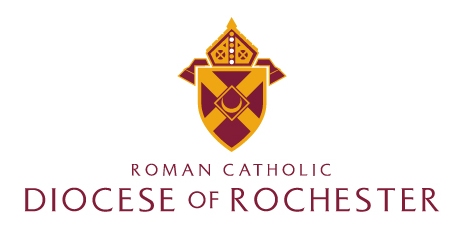 On my recent trip to the Diocese of Rochester, NY, to do a couple of presentations, I had the pleasure of sharing a couple of long car rides with Jonathan Schott, the Coordinator of Adult, Family, and Catechist Formation. Our conversations were wide-ranging: sports, movies, TV, and, of course, catechesis!
On my recent trip to the Diocese of Rochester, NY, to do a couple of presentations, I had the pleasure of sharing a couple of long car rides with Jonathan Schott, the Coordinator of Adult, Family, and Catechist Formation. Our conversations were wide-ranging: sports, movies, TV, and, of course, catechesis!
In particular, we talked about catechist formation and I was particularly impressed with the online approach that the Diocese of Rochester takes for catechist formation. Their Online Learning Center provides individuals with access to quality resources leading to catechist certification. What I love about their approach is that it respects the learner as well as the role of the catechetical leader while maitaining quality control.
The “Alive in Christ” Catechist Certification program has 3 levels:
- The Commissioned Catechist (basic orientation at the parish level including Safe Environment Training)
- Foundational Catechist Certification (completion of modules in the following core areas: Discovering My Experience of God; Faith Within Families; Scripture; Creed; Worship; Church; Morality) – Foundational Certification can be accomplished in a number of ways (includng completion of the Echoes of Faith video series. Self-Assessment Tools are also available, as well as participation in workshops and seminars. Most importantly, however, is the availability of resources to complete the modules using the Online Learning Center.
- Master Catechist Certification (completion of 22 additional modules using the Diocese’s online DVD formation series as the standard and preferred method of completion)
This structure is not particularly unique – many dioceses have varying levels of catechist certification. What IS unique is the opportunity to accomplish this certification via an online experience. In a nutshell, a catechist seeking Foundational Certification can go to the Online Learning Center and participate in E-Learning Courses (guided presentations) as well as take advantage of the opportunity to “test out” of core areas by successfully completing an online quiz. This is particularly respectful of the catechist. Jonathan explains:
First, we wanted to be able to offer constant and consistent access to catechist formation for all catechists of the diocese. The online formation program met that goal in that now all catechists have 24/7 access to quality formation opportunities online–to meet their scheduling concerns–in addition to the various in-person opportunities in parishes and schools.
The second goal we aimed to accomplish was to ease the sense of anxiety or fear about completing catechist formation. After all, becoming a certified catechist is something that all catechists are called to do as they embark in this ministry. Rather than require a catechist sit through several workshops or class sessions, the online courses and self-assessment tools provides them with a way to work on certification at one’s own pace. We’ve had people complete their online work in a weekend, while others have used several week to complete their online work. This approach has vastly increased the number of certified catechists in the diocese. For example, last year one parish certified 15 catechists, which is more than the sum total of all their certifications in the previous 10 years.
Jonathan, who coordinates the program under the supervision of veteran director Maribeth Mancini, explains how this process is also respectful of the catechetical leader:
A goal that we didn’t necessarily set out to meet–nor were we aware of–was the fact that having an online certification program actually increases the quality of interaction with a catechist’s DRE. We all know there’s a large turnover rate for catechists in our parishes. So, rather than having our parishes offer the same courses over and over again to meet with this turnover, when they use the online system, the DRE gets to interact more personally with their catechist and make a stronger connection. For example, if a catechist doesn’t show competency in a online self-assessment module, then the DRE has the wonderful opportunity to personally work with that catechist to achieve competency rather than saying “well, you have to wait for the next time we offer that course!”
Jonathan summarizes the philosophy of the online learning approach thus:
The overall philosophy was to create a system that responds to the current trends in education and the current pressures on individual’s time constraints along with making quality formation consistently accessible. The online system allows us to curate the content, issue the standards, and affords the parishes and schools to administrate their own catechists and spend more individual time with catechists and developing their ministry.
I share this information especially for those catechetical leaders and diocesan directors in areas where there are limited resources for catechist formation. I receive inquiries often from people in rural areas, impoverished areas, and from other countries where there are few Catholics, asking about resources for catechist formation. I encourage you to look at the Online Learning Center of the Diocese of Rochester, NY, and to get in touch with Jonathan Schott (jschott@dor.org), who is passionate about this endeavor. Thanks, Jonathan, for sharing this info with us!




Thank you so much for posting this — what a great resource. Both the three levels of certification and the online learning option are key.
In our diocese, many catechists are self-taught, and there isn’t a process to facilitate certification in that case. At the opposite end, we have many wonderful volunteers who don’t have a strong academic background in the faith, and it easy to never offer the courses they need to catch up on basics. The online option looks like a great way to meet the needs of both those situations.